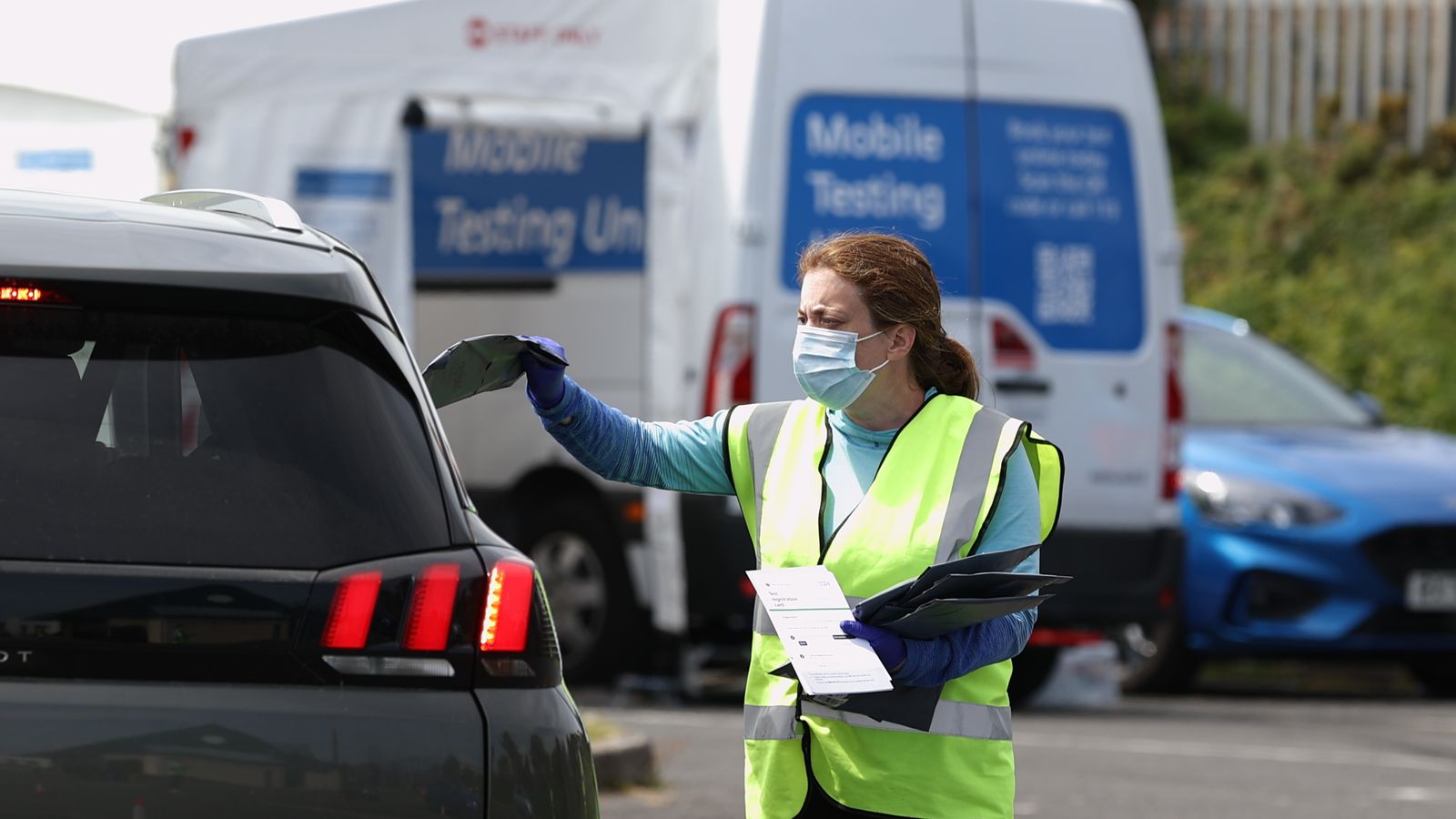The UK has reported 11,625 new COVID cases – the highest since mid-February – and 27 coronavirus-related deaths in the latest 24-hour period, according to government data.
The figures compare with 10,633 new infections and five fatalities announced on Monday.
Another 21,080 people received their first dose of a coronavirus vaccine yesterday, while 39,325 people had a second dose.
This takes the total number of first doses to 43,148,843 and the number of people who are fully-vaccinated to 31,489,240.
Monday’s vaccination figures only include those that took place in Scotland, Wales and Northern Ireland due to an NHS England IT error, the Department of Health said.
The number of COVID cases reported on Tuesday is the highest since 19 February – when 12,027 new infections were recorded.
Tuesday’s daily death figures are also the highest since 12 April – when 30 fatalities were reported.
It comes after First Minister Nicola Sturgeon announced that current COVID-19 restrictions in Scotland will remain in place until 19 July – in line with the plan for England.
Ms Sturgeon had hoped to move the country to Level 0 of its five-tier system on 28 June, but after a 40% increase in cases, it will be delayed for a further three weeks, she said on Tuesday.
Speaking to Sky News earlier, Health Secretary Matt Hancock said England was “on track” to remove all remaining COVID restrictions on 19 July.
The government has been less clear on the plan for restarting international travel, with Boris Johnson saying on Monday that it would be a “difficult year for travel – whatever happens”.
Mr Hancock said experts are working on plans to allow people who are fully-vaccinated to travel to amber list countries without having to quarantine on their return.
But travel firm TUI criticised the government’s approach and joined a number of airlines and industry bodies taking legal action over the traffic light travel system.
Elsewhere the government announced that 60,000 fans will be allowed to watch the Euro 2020 final and semi-finals at Wembley.
All spectators will need to show proof of a negative coronavirus test – or two doses of a vaccine 14 days before.
They will be the largest crowds to watch a football match in person since the pandemic began last year.






















